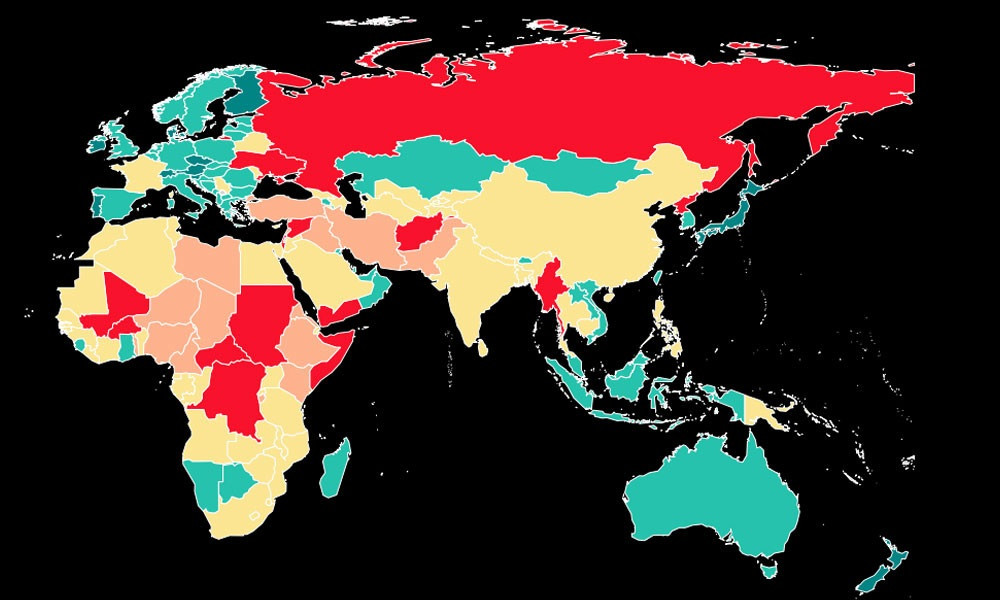Staff Correspondent
Published:2025-06-28 20:20:01 BdST
Instability, violence key drivers behind Bangladesh’s decline in peace index
The Australia-based Institute for Economics and Peace (IEP) has released this year’s Global Peace Index (GPI), revealing that Bangladesh has dropped 33 places to rank 123rd—an alarming slide that experts deem deeply concerning.
They cite political instability, economic disparity, corruption and looting, social unrest, public dissatisfaction, mob violence, and global conflict as primary reasons for the country’s worsening peace profile.
According to IEP, while Bangladesh showed slight improvement in 2023, its overall score dropped by 13.2% in 2024. The decline is largely attributed to widespread civic unrest that eventually turned violent. This unrest culminated in the ousting and exile of former Prime Minister Sheikh Hasina in July–August 2024, following a massive public uprising. Despite the formation of an interim government, the expected improvements in national stability did not materialise.
The Bangladesh Peace Council’s Secretary, Advocate Hasan Tariq Chowdhury, told, “Falling 33 places in the Global Peace Index is undoubtedly troubling. As the IEP evaluates based on economic and social security, military tensions, and more, such a rating sends a negative message to the global community about Bangladesh’s image. Questions will naturally arise regarding who is responsible for this decline.”
He added, “Mob violence, the erosion of rule of law, rising economic inequality, and growing insecurity among religious and ethnic minorities are all likely factors. The government must review these issues and act swiftly to reverse the trend.”
Professor Mir Mohammad Ali of Sher-e-Bangla Agricultural University told, “Social unrest is only intensifying. Youth are being misguided and drawn into violence. A culture of impunity, absence of good governance, and moral degradation are deepening the crisis. This has eroded investor confidence, directly impacting the economy.”
He referred to a survey which found that due to political violence, 32% of adults in the country reported poor mental health, potentially jeopardising long-term national stability. Additionally, 25% of respondents said they no longer felt safe in their daily lives.
“Such political unrest and human rights violations have tarnished Bangladesh’s international standing, posing a serious challenge,” he said.
He further stressed, “To improve not only the peace index but also national welfare, violence must be halted. Political leaders need to embrace ethics and accountability. Strengthened rule of law and judicial reforms are essential, and the government must act with genuine resolve to achieve lasting peace and stability.”
Unauthorized use or reproduction of The Finance Today content for commercial purposes is strictly prohibited.


